Audi shocked the motorsport world on Monday when they announced that they would be ending their DTM involvement after the end of the 2020 season to focus on Formula E in alignment with their corporate strategy.
It is difficult to deny that this is a hammer blow to DTM, from both a historical and a championship perspective. Audi has almost become synonymous with DTM and is one of its most successful manufacturers. Since joining the championship in 1990, the Ingolstadt manufacturer has taken over 100 race wins and 23 championship titles.
On the championship side of things, Audi’s departure is nothing short of disastrous and leaves DTM in a dire position. In a way, this could be seen as the culmination of a downward slope that began in 2018, when Mercedes left the championship. It was replaced for 2019 by R-Motorsport’s Aston Martin effort, but that was filled with issues and curtailed after a single year. The prospect of a grid consisting purely of Audi and BMW entries was already less than ideal, and that has now been made significantly worse.
So where does DTM go from here? Motorsport Week takes a look at a few possible scenarios.
GT Racing?
One of the ideas that has been floated about is that DTM abandons its touring car heritage completely and focuses on the GT racing aspect that it has found itself drifting towards in increasing manner for the last couple of years. When you compare the current generation of DTM machinery with the cars that were on the grid in the first years of its existence, it’s fairly obvious that there are few touring car characteristics left. Therefore, perhaps a move more towards GT machinery would make some sense. It’s also been floated by a number of notable racers that this might be the way to go.
This approach does have its fair number of issues, however. GT racing in both a German and European market is fairly saturated. The ADAC GT Masters is Germany’s go-to GT3 series, while the GT World Challenge Europe has the European market covered, so if a move towards GT racing were to be made, the championship would have to find a way to differentiate itself.
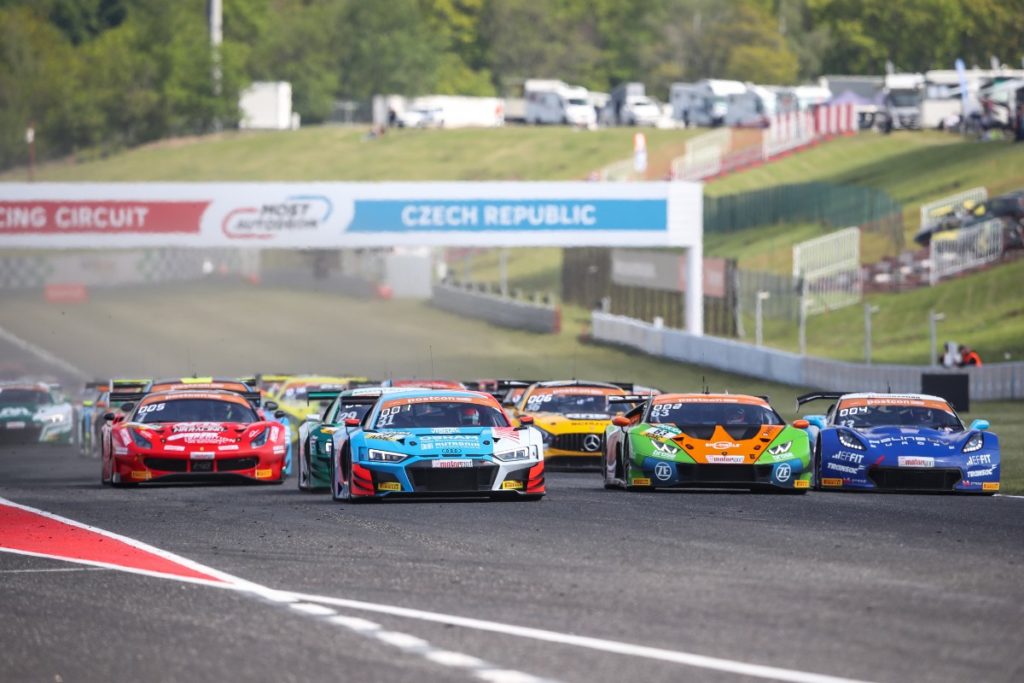
One way it could potentially do that is to let cars run unrestricted. The GT3 machinery that you see racing around the globe today usually have restrictions placed upon them in terms of power output. A GT3 car in current competition spec usually produces somewhere in the region of 450 to 500 horsepower, but the powerful engines are capable of producing more than that.
One way DTM could make itself stand out in a busy GT3 market is by being the only championship that lets these cars run to their maximum, unrestricted potential. On paper, it sounds like an interesting idea, but would likely require a lot of work to make it viable, with a merger with ADAC GT series also possibly needed.
An all-electric future
It seems like a lifetime ago in today’s pandemic world, but back in November of last year, DTM’s promoter ITR unveiled an ambitious concept for an all-electric series to run alongside DTM. The concept envisioned cars powered by batteries or hydrogen fuel cells capable of producing a 1000 horsepower, with robots conducting pitstops and cars running at speeds of over 300 kilometres an hour. At the time, the plan was to originally have it debut as a support series, but under current circumstances, it might be the key to DTM’s survival.
Audi’s withdrawal, although partly caused by the economic impact caused by the pandemic, was largely fuelled by the Ingolstadt firm refocusing its motorsport efforts with its corporate target of reducing its carbon footprint and increasing production of electric cars. It’s something many major automotive manufacturers are doing, which is also why the ABB FIA Formula E Championship has enjoyed increased attention from manufacturers in recent years.
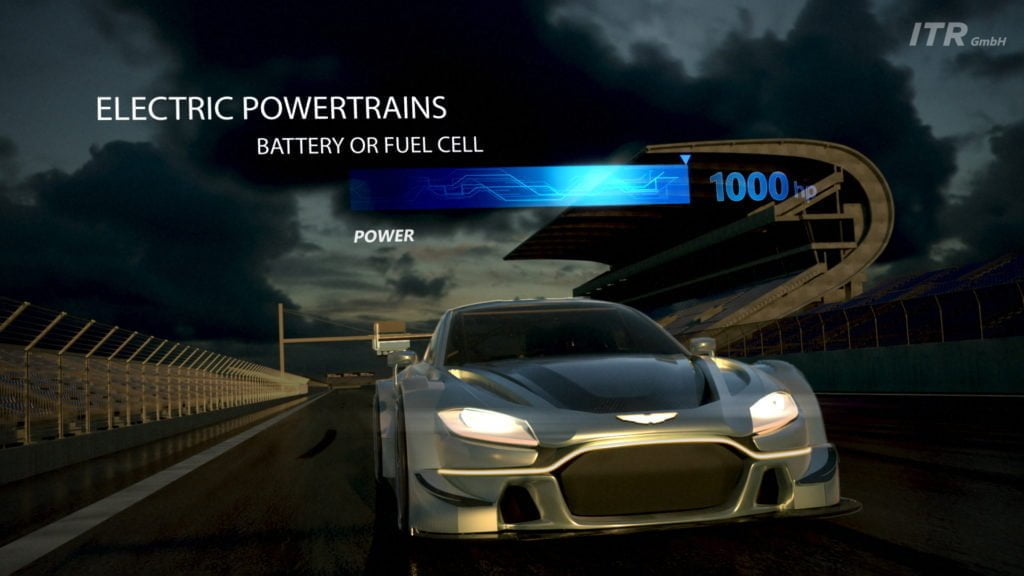
Just about every major manufacturer in the automotive industry is in one way or another involved in Formula E, or like Toyota, developing hybrid systems by racing their hybrid LMP1s in the FIA World Endurance Championship. WEC was first in 2012, with F1 going hybrid in 2014 and Formula E holding its first races in the same year.
To put it bluntly, DTM in its current state is an analogue championship in a digital world. For the second time in two years, this has been proven by the fact that one of its key manufacturers has left the series to focus on Formula E. First it was Mercedes, which left in 2018 and is now a front-running team with Stoffel Vandoorne and Nyck de Vries, and now its Audi. DTM, to its credit, has been working towards a vision for the future as it had been planning to introduce a hybrid system, but that was slated introduction in 2022. With the way things are currently going, it might not even see that date.
The truth is, while DTM no doubt has ambitions to go electric, it really does seem like it is way beyond the curve, and going electric is a thing that won’t be easy to implement, especially not in the current climate. But with the automotive industry continuing to relay its focus in that direction, maybe it’s the only option.
What about Super GT?
2019 marked the first DTM season run under the new Class One regulations, which have been adopted by the Japanese Super GT championship this year, meaning crossover races between the two championships are possible and would theoretically make it possible for DTM teams to run in Super GT and vice versa. We saw the first glimpses of that in 2019. First, three entries from Nissan, Lexus and Honda took part in DTM’s season finale at Hockenheim, and then a contingent of Audi and BMW runners travelled to Fuji Speedway to battle the Super GT regulars in a standalone event called the Fuji Dream Race.
As the Super GT runners had not yet adopted the Class One regulations by that same, the results weren’t entirely representative, but it gave a window into what a shared series between the two could look like.
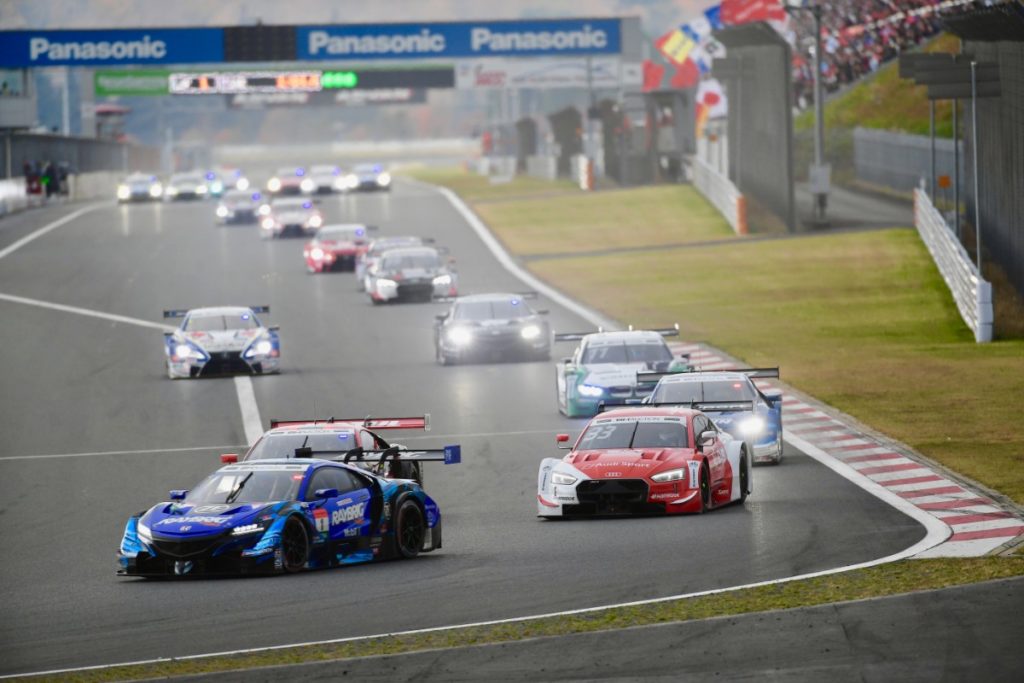
With Audi now leaving and BMW remaining as DTM’s only manufacturer, one could wonder if the Class One regulations could perhaps be a potential solution. Would it not be possible to simply bring in Toyota, Nissan and Honda and have them race in DTM? Or maybe, if you’re thinking big, why not create a Class One world championship, with the four manufacturers racing together in a global series?
While the idea sure looks good on paper, the reality is most likely different. It’s important to remember that the DTM/Super GT partnership is more or less still in its infancy. Class One regulations have only just been adopted, and we’ve only had a pair of crossover events. There probably were plans for more events in 2020, but the pandemic but paid to that.
With that in mind, and considering as both series are weathering storms domestically thanks to the pandemic and all of the economic issues that stem from it, it’s very unlikely that the Class One could provide a lasting solution in the short term.
Back to the roots
This goes pretty much in the opposite direction of what was mentioned at the beginning of this story. DTM, while not exactly touring car-based today, has historically always been a touring car series. DTM’s acronym is short for Deutsche Tourenwagen Masters, with ‘tourenwagen’ literally meaning touring car. But like we mentioned earlier, there’s little remaining of that today. Today’s DTM cars are a weird Frankenstein’s monster-esque fusion between a touring car and a GT racer. They are still built to resemble the road cars that you could order at your local dealership tomorrow, but underneath, they are purpose-built silhouette racers.
This might be very wishful thinking, but: what if we truly go back to the roots and revert DTM back into a true touring car series? If you look at pictures from the original Deutsche Tourenwagen Meisterschaft held in the 80s and 90s, you’ll see the likes of the BMW M3, Mercedes 190E and even the Rover Vitesse and Volvo 240 Turbo, cars that embody that famous old saying: win on Sunday, sell on Monday.
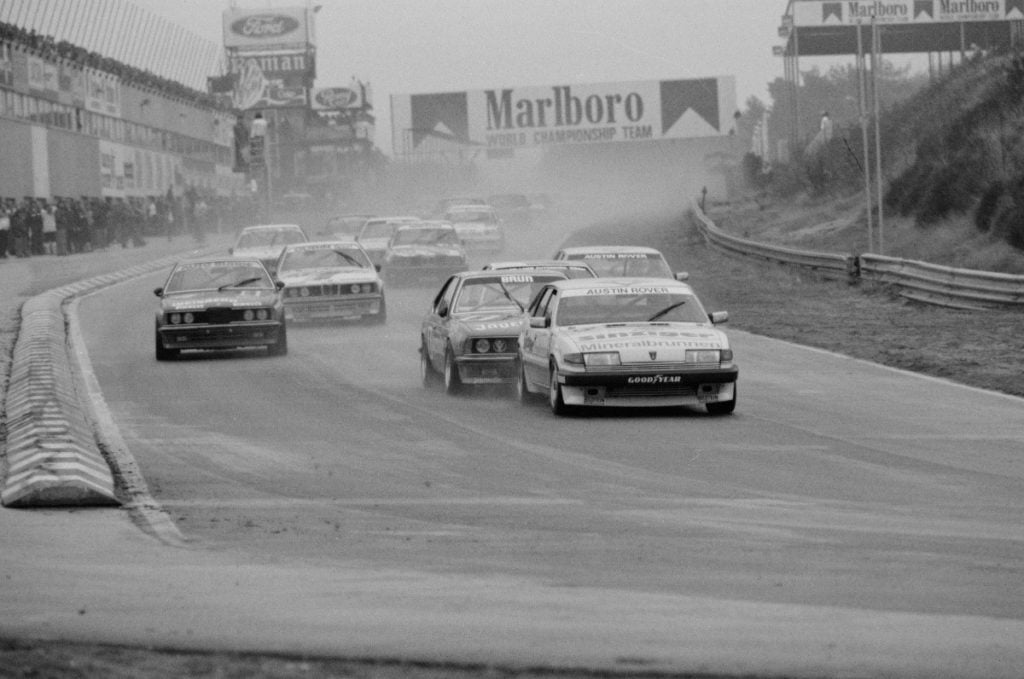
Reverting to this type of racing would, like the GT idea, bring its own issues. Like GT3, touring car racing is already fairly well represented at a national, European and even worldwide level with championships like the BTCC and WTCR. There even already is a German Touring Car Championship currently run under TCR rules. It acts as a support series to the ADAC GT Masters series, with rounds in Germany, Czech Republic, Austria and the Netherlands.
So like with a GT3 conversion, the DTM would have to differentiate itself from the pack with this approach, but perhaps the biggest issue is that it seems rather unlikely in the grand scheme of things. DTM has been on the road towards its current identity for years that it would be a huge turn to make to go from its current identity to go back to proper touring car racing. Therefore: a back-to-the roots style of DTM might be cool, but will it happen? Probably not.
The end of the road
Obviously, this is the outcome nobody wants to talk about. But given the current circumstances, it could very well be a possibility. With only one manufacturer remaining, DTM is far from sustainable at the moment. There is historical precedent for the championship folding when only a single manufacturer remained. In 1995, then then named Deutsche Tourenwagen Meisterschaft began hosting races alongside the inaugural FIA International Touring Car Series, before the two merged into the International Touring Car Championship. The championship met its demise at the end of the season after a string of questionable decisions. Alfa Romeo and Opel abandoned the championship, leaving a single manufacturer in Mercedes and the ITC subsequently closed its doors. The DTM as know it was formed in 2000.
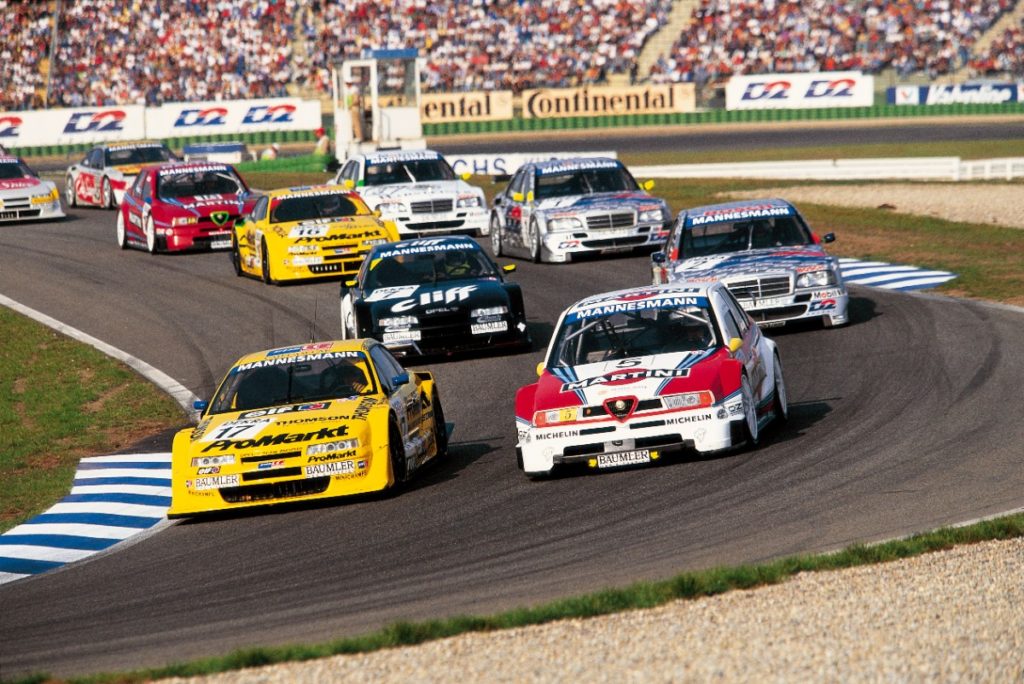
20 years after the DTM was reformed, the championship finds itself in a situation remarkably similar to that of 1996. The exact reasons and circumstances are obviously different, but there are glaring similarites. Two decades ago, the championship folded. Will it happen again? At this point, we simply don’t know.
It goes without saying that it would be a massive shame to see a championship with such history close its doors. ITR and chairman Gerhard Berger have some very difficult decisions to make. As for the rest of us: all we can do is wait.

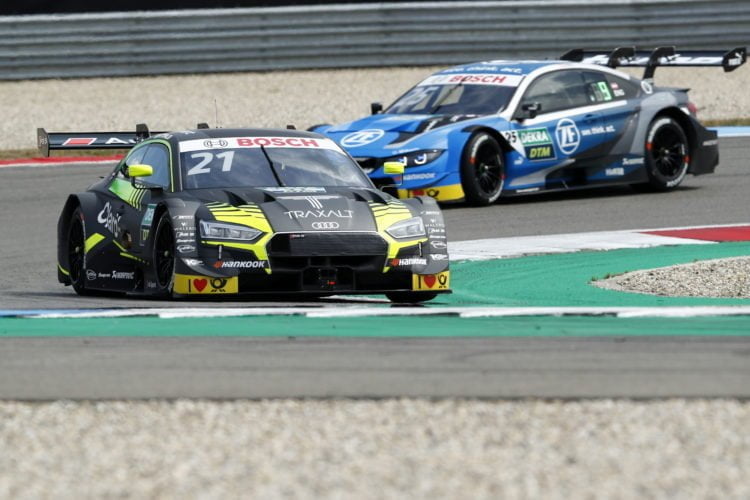


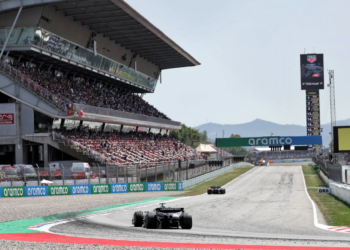
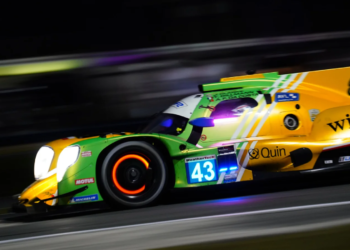
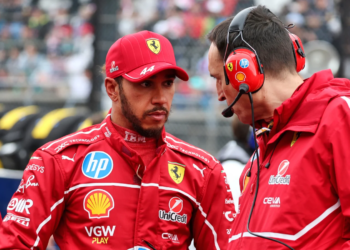



Discussion about this post